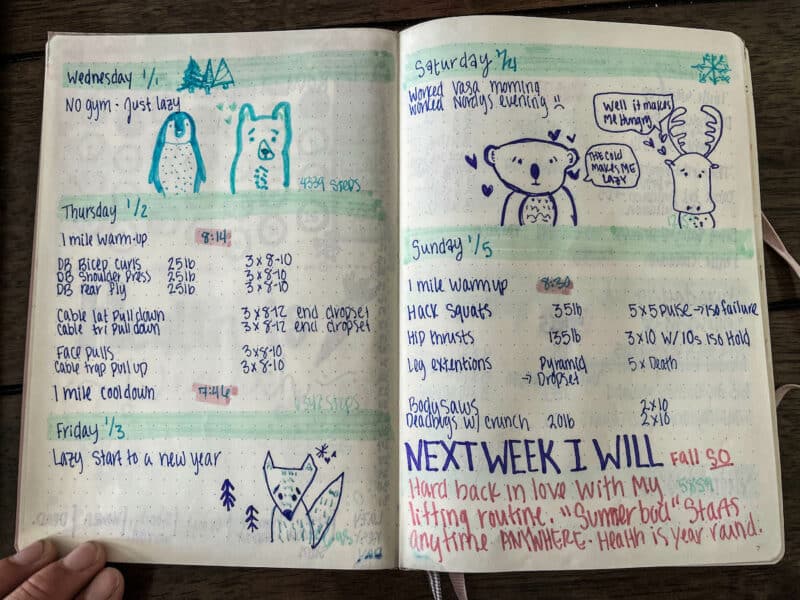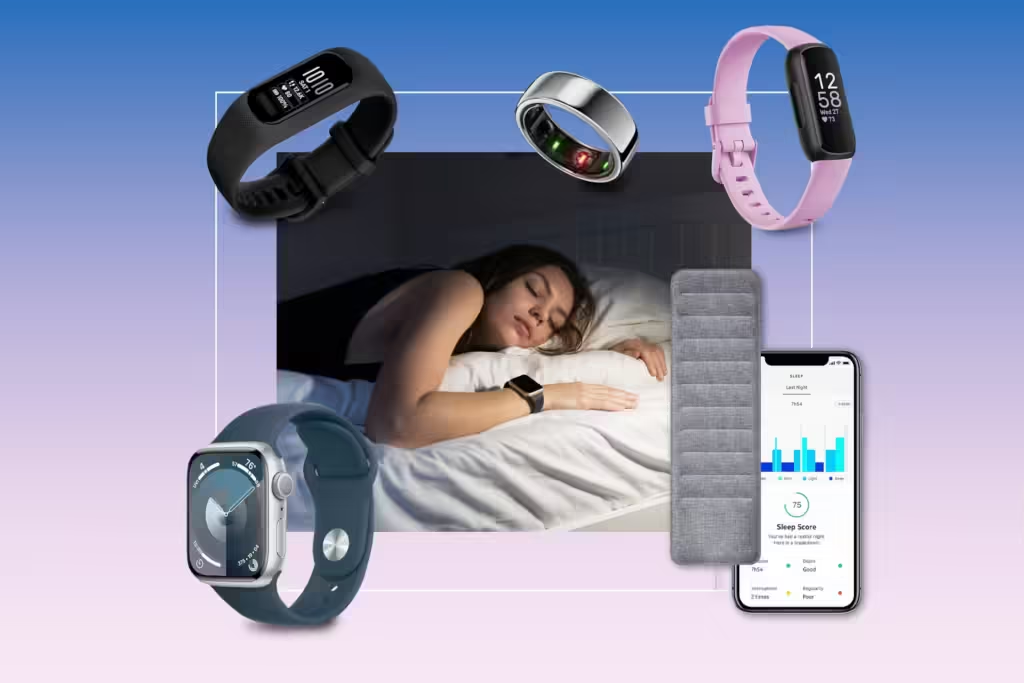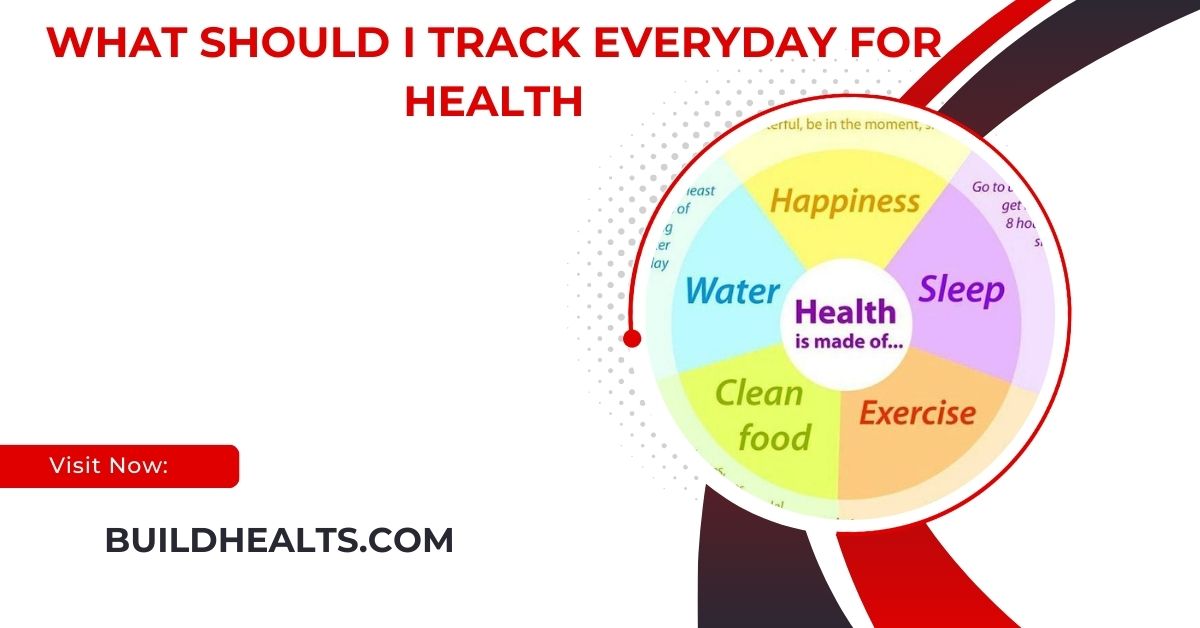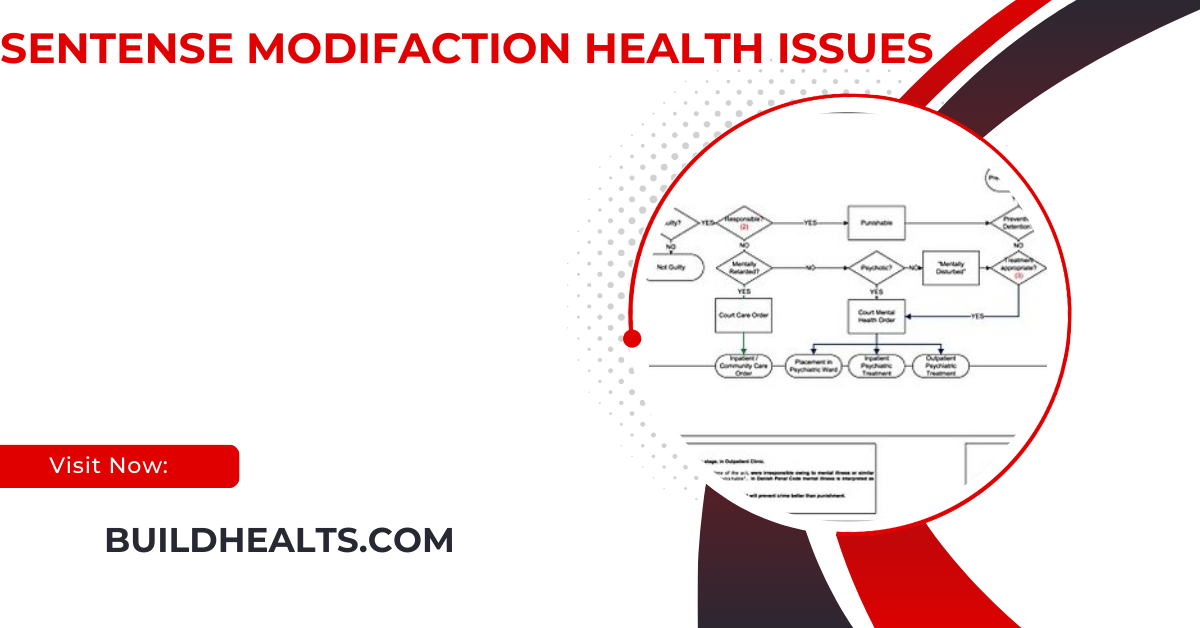Tracking health daily helps identify patterns and stay motivated. Focus on nutrition, exercise, sleep, hydration, mood, and symptoms.
Staying healthy is vital for leading a happy and fulfilling life.One effective way to achieve this is by tracking various aspects of your daily life that contribute to your overall health.
In this article, we will explore what you should track every day for health, the benefits of tracking, and how to get started.
Why Tracking Health is Important:

Tracking your health daily can help you identify patterns, stay motivated, and make informed decisions about your lifestyle. It can also serve as a powerful tool for setting goals and improving your physical and mental well-being. Here are a few reasons why daily tracking is beneficial:
- Awareness: By tracking your habits, you become more aware of your behaviors and how they affect your health.Recognizing this is the initial step towards creating positive changes.
- Accountability: Keeping a record can motivate you to stick to your health goals and commitments. When you see your progress, it reinforces your efforts.
- Progress Measurement: You can easily see your progress over time, which can boost your motivation and confidence. Celebrating small victories is essential in maintaining a positive mindset.
- Better Decision Making: Tracking helps you understand what works for you and what doesn’t, allowing you to make better choices regarding your health and wellness.
- Identifying Patterns: Tracking your health can reveal patterns in your habits that may impact your well-being, such as stress triggers or food sensitivities.
What to Track Daily for Health:
Food and Nutrition:
Tracking your food intake is one of the most important aspects of maintaining a healthy lifestyle. Consider keeping a food diary where you note down everything you eat and drink. This can help you:
- Monitor Caloric Intake: Understanding how many calories you consume daily can help you manage your weight and dietary needs.
- Balance Your Diet: Ensure you are getting enough fruits, vegetables, protein, and healthy fats. A balanced diet is key to providing your body with essential nutrients.
- Identify Triggers: Recognize emotional eating patterns or food sensitivities that may impact your health. For instance, if you notice you often reach for snacks when stressed, it might be time to find healthier coping mechanisms.
Tips for Tracking Food and Nutrition:
- Use a mobile app or a journal: Apps like MyFitnessPal or Lose It! allow you to track your meals easily.
- Be honest and accurate about portion sizes: Measuring your food can help you understand serving sizes better.
- Include snacks and drinks: Be sure to record everything you consume, as snacks and beverages also contribute to your overall intake.
- Plan Your Meals: Consider meal prepping to make healthier choices easier throughout the week. When you have healthy meals ready, you are less likely to grab unhealthy options.
Physical Activity:
Tracking your physical activity can help you stay active and reach your fitness goals. This includes not only structured workouts but also daily movements such as walking, gardening, or cleaning. Here’s what to track:
- Duration of Exercise: Record how long you exercise each day. This can help you see if you are meeting the recommended 150 minutes of moderate-intensity exercise per week.
- Type of Activity: Note down the different types of workouts (e.g., running, swimming, strength training). Variety in your workouts is essential for overall fitness.
- Intensity: Track how hard you are working during your workouts. This can help you gauge whether you are challenging yourself enough.
Also read: How Much Health Does Chimaeron Have – A Comprehensive Guide!
Tips for Tracking Physical Activity:
- Use a fitness tracker or smartphone app: Devices like Fitbit or apps such as Strava can automatically track your activity and progress.
- Set specific goals: Aim for a certain number of steps per day or minutes of exercise per week to stay motivated.
- Celebrate small victories: Acknowledge your achievements, whether it’s a new personal best or simply sticking to your routine.
Sleep Patterns:
Sleep is crucial for overall health, and tracking your sleep can help you understand its impact on your daily life. Consider noting:
- Hours of Sleep: Record how many hours you sleep each night. The recommended amount for most adults is 7-9 hours.
- Sleep Quality: Rate your sleep quality on a scale from 1 to 10. This can help you identify trends and make necessary adjustments.
- Sleep Patterns: Note any patterns in your sleep, such as waking up frequently or having trouble falling asleep.
Tips for Tracking Sleep:

- Keep a consistent bedtime and wake-up time: Establishing a routine can help regulate your body’s internal clock.
- Use a sleep app: Apps like Sleep Cycle or Pillow can track your sleep cycles and provide insights into your sleep quality.
- Consider using relaxation techniques: Activities like reading, meditation, or light stretching before bed can improve sleep quality.
Water Intake:
Staying hydrated is essential for your health. Tracking your water intake can help ensure you are drinking enough throughout the day. Here’s what to keep in mind:
- Daily Water Goal: Aim for at least 8-10 cups of water per day, but adjust based on your activity level, climate, and personal needs.
- Other Beverages: Include other beverages (like tea and coffee) in your total fluid intake. Just be cautious with sugary drinks, which can add empty calories.
Tips for Tracking Water Intake:
- Carry a water bottle with you: Having water readily available encourages regular sipping throughout the day.
- Use a hydration app: Apps like WaterMinder can remind you to drink water and track your intake easily.
- Infuse your water with fruits or herbs: This can make drinking water more enjoyable and encourage you to meet your hydration goals.
Mood and Mental Health:
Tracking your mood can help you understand how your daily habits affect your mental health. It can also help you identify patterns or triggers for anxiety, stress, or sadness. Consider noting:
- Daily Mood: Rate your mood on a scale from 1 to 10. This can help you gauge fluctuations and understand what influences your emotions.
- Triggers: Note any events or activities that impact your mood positively or negatively. For example, socializing with friends might boost your mood, while a stressful day at work might lower it.
- Coping Strategies: Record what you did to improve your mood (e.g., exercise, meditation, talking to a friend). Knowing what works for you can help you manage stress better in the future.
Tips for Tracking Mood:
- Use a mood tracking app: Apps like Daylio allow you to document your mood and activities quickly.
- Reflect on your mood regularly: Take a moment each day to think about your feelings and what may have influenced them.
- Consider journaling about your feelings: Writing can be therapeutic and help you process your emotions.
Health Symptoms:
If you have any existing health conditions or symptoms, tracking them can help you and your healthcare provider make better decisions about your health. Consider noting:
- Daily Symptoms: Record any symptoms you experience, such as headaches, fatigue, or digestive issues. This can help you identify patterns over time.
- Frequency and Duration: Note how often symptoms occur and how long they last. This information can be critical for discussions with your healthcare provider.
Tips for Tracking Health Symptoms:
- Be detailed and specific in your notes: Include context, such as what you were doing when the symptoms occurred.
- Use a health tracking app: Apps like MySymptoms can help you monitor symptoms and identify triggers.
- Share your findings with your healthcare provider: Accurate tracking can provide valuable insights for managing your health.
How to Start Tracking Your Health:

Set Clear Goals:
Begin by setting specific health goals you want to achieve, such as losing weight, improving fitness, or enhancing mental well-being.Setting clear goals will enhance your ability to focus your tracking efforts.
- SMART Goals: Use the SMART criteria (Specific, Measurable, Achievable, Relevant, Time-bound) to create effective goals.For instance, instead of expressing a desire like, “I want to eat healthier,” establish a specific goal such as, “I will eat five servings of fruits and vegetables every day for the next month.”
Choose Your Tools:
Decide how you want to track your health. You can use:
- Mobile Apps: There are many apps available for tracking food, exercise, sleep, and mood. Some popular options include MyFitnessPal, Fitbit, and WaterMinder.
- Journals: A physical journal can be a great way to keep a personal record of your health journey. Choose one that you enjoy using to increase the likelihood of consistency.
- Wearable Devices: Fitness trackers and smartwatches can automatically track your activity and sleep, providing valuable data without much effort.
Be Consistent:
Consistency is key to effective tracking. Try to set aside a few minutes each day to record your data. The more consistently you track, the better your insights will be.
- Create a Daily Routine: Incorporate tracking into your daily routine, such as recording your food intake after each meal or checking your mood before bed.
- Schedule Reminders: Set reminders on your phone or calendar to help you remember to track your health.
Review Regularly:
Take time to review your data weekly or monthly. Look for patterns or trends that can help you make informed decisions about your health.
- Reflect on Your Progress: Celebrate your successes and identify areas for improvement. This can motivate you to continue tracking and working toward your goals.
- Adjust Your Goals as Needed: As you learn more about your habits, don’t hesitate to adjust your goals to make them more realistic or challenging.
Also read: Magnesium Rods Health Hazards List – What You Need to Know!
Seek Support:
Consider sharing your health tracking journey with friends, family, or a support group. Having a support system can provide encouragement and accountability.
- Join a Fitness Group: Participating in group activities can keep you motivated and make tracking more enjoyable.
- Share Your Goals: Letting others know about your health goals can provide a sense of accountability.
FAQ’s
1. Why should I track my health daily?
Tracking your health helps you become aware of your habits, stay accountable to your goals, measure progress, and make better health decisions.
2. What should I track for nutrition?
You should track your food intake, including meals, snacks, and beverages, to monitor caloric intake, ensure a balanced diet, and identify any food sensitivities.
3.How can I monitor my physical activity?
Track the duration, type, and intensity of your exercises using fitness apps or devices like Fitbit to help meet your fitness goals.
4. Why is sleep tracking important?
Tracking sleep helps you understand its impact on your overall health, allowing you to identify patterns and improve sleep quality for better daily functioning.
5. What tools can I use to track my health?
You can use mobile apps, fitness trackers, or a personal journal to keep records of your food, exercise, sleep, and mood effectively.
Conclusion
In conclusion, tracking your health daily boosts awareness and helps you make informed decisions about your well-being. It allows you to identify patterns and stay motivated. By focusing on nutrition, exercise, sleep, and mood, you can improve overall health effectively.




